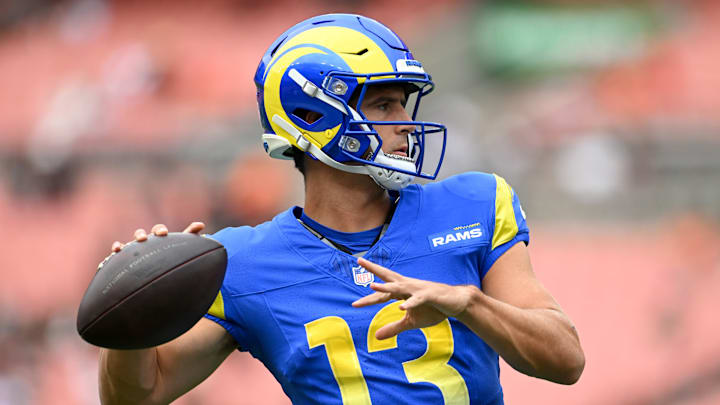With Heisman voting finished by Dec. 8, voters are denied the opportunity to see the best college football players do what they best do, win National Championships. If they had done this in 2022, Stetson Bennett likely would have won after leading Georgia to its second National Championship trophy. Not Caleb Williams at USC, who finished 11-3 and didn't make the playoffs.
This scenario has become more prevalent the last few years. Let's take a look at the disconnect between Heisman winners and teams winning the national championship.
2021 - Georgia wins Natty, no Heisman recognition
Save a heartbreaking loss in the SEC Championship, Georgia went 14-1 and beat Alabama for the National Championship, but the Crimson Tide's Bryce Young won the Heisman. Bennett was not even remotely close to being invited to New York for the ceremony.
2022 - Georgia wins Natty, barely got Heisman recognition
Perhaps out of pity, but Bennett got invited as the fourth place finisher for the Heisman even though Georgia won an unprecedented second National Championship in a row. Caleb Williams of USC won by a mile, despite his team finishing 11-3 and not making the CFP.
2023 - Michigan wins Natty, but LSU's Jayden Daniels gets Heisman
LSU finished at 10-3 and did not make the CFP, but Daniels' flashy play amazed the voters well ahead of the playoffs and he walked away with the Heisman.
2024 - Ohio State wins Natty, but Colorado's Travis Hunter gets Heisman
Granted, Hunter was a quality two-way player, but Colorado finished 9-4 and no one from the Buckeyes was in the top 10 for Heisman voting that year.
If the Heisman committee doesn't change when the voting is and places it after the National Championship, then it will eventually dilute the prestigiousness of the award because everyone will see that it's not taking into consideration the effect, impact and influence of college football's best player on enabling his team to win when it matters most.
